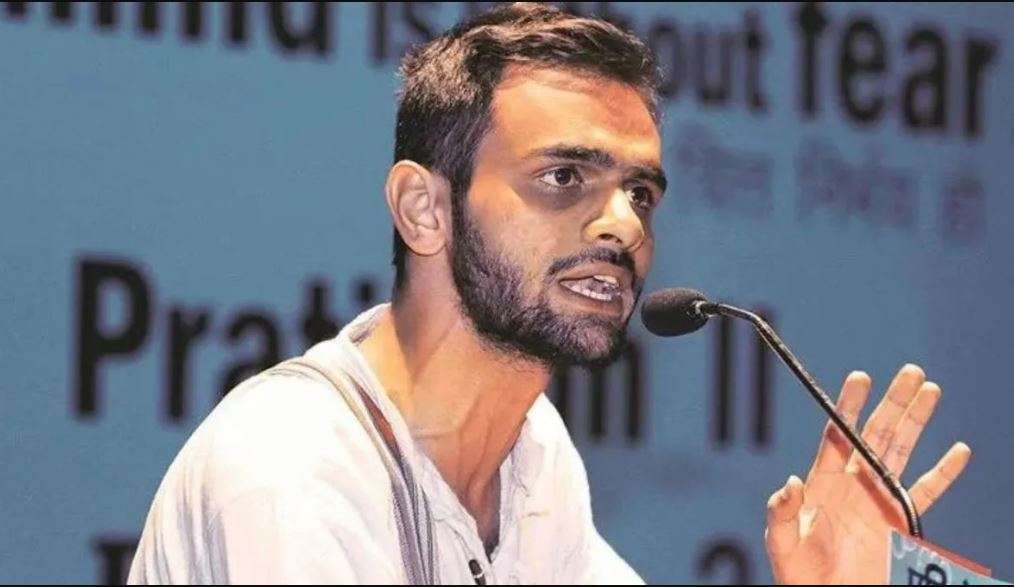
New Delhi. Four years after the Delhi Police named student activist Umar Khalid as a key conspirator in the February 2020 riots in north-east Delhi, Khalid remains imprisoned in Tihar jail without trial or bail.
Khalid, a former Jawaharlal Nehru University (JNU) student who was arrested under the stringent Unlawful Activities (Prevention) Act (UAPA) by the Delhi Police’s special cell on September 14, 2020, has been accused of plotting the riots that left 53 people, most of them Muslims, dead.
Despite pleading not guilty and saying he had only participated in peaceful protests, Khalid’s attempts to secure bail have been repeatedly denied. The Supreme Court has often held that ‘bail is the rule’ even for offences under special laws like the UAPA, but Khalid still faces significant legal hurdles.
For the last two-three days, many people have made comments on social media demanding the release of Umar Khalid. Senior journalist, Ravish Kumar said, “Bail rule and jail exception. When will it be applicable to Umar Khalid and Gulfishaan Fatima? It has been 4 years”
Meanwhile, Congress national spokesperson Supriya Shrinate said, “Why does the court not take cognizance of the Muslim youth who are in jails without any trial? Don’t Amit Shah and Narendra Modi like the faces of Sharjeel Imam, Umar Khalid and Shafi? They should also be taken cognizance of.”
Political activist Yogendra Yadav said, ” Umar Khalid has completed 4 years in jail without committing any crime. These four years are a stain on our judicial system, on the Constitution of India…”
Umar Khalid : A case of a big conspiracy
Following the 2020 riots, the Delhi Police arrested over 2,500 individuals in various cases. Of them, Khalid was charged in a larger conspiracy case along with 17 others, many of whom have since been granted bail. Khalid was first denied bail by the Karkardooma Court in March 2022 and later by the Delhi High Court in October 2022. Following this, he appealed to the Supreme Court.
By February 2024, his petition had been adjourned 14 times over the course of 11 months. The adjournments were often attributed to absent lawyers or requests from the prosecution. In some cases, the case could not be taken up due to issues with the composition of the bench or other scheduling conflicts. His hearing was last adjourned in November 2023 and then again in January 2024 for different reasons.
On February 14, 2024, Khalid withdrew his bail plea from the Supreme Court citing “changed circumstances” and filed a fresh plea in the trial court on the grounds of delay and parity with other accused. However, bail was rejected once again on May 28, 2024. His plea is now pending in the Delhi High Court.
Pain and hope
Delhi-based researcher and Khalid’s colleague Banojyotsna Lahiri expressed her anguish over Khalid’s long detention, saying that Khalid has always advocated love in response to hate. “He has been in jail for years without a trial and I hope he at least gets a chance to be heard soon,” she said.
‘Bail is a rule’
On August 13, 2024, a Supreme Court bench comprising Justices Abhay S. Oka and Augustine George Masih reiterated that the legal principle ‘bail is the rule, jail is the exception’ applies to cases under the UAPA as well. However, they granted bail to another accused under the same anti-terror law, stating that denial of bail in deserving cases is a violation of fundamental rights.
Earlier, in July, a bench of Justices JB Pardiwala and Ujjwal Bhuyan had stressed that irrespective of the nature of the offence, the right to bail should not be curtailed as a matter of conviction.
Umar Khalid: Different voices in the judiciary
Senior advocate Sanjay Hegde highlighted that the Supreme Court, being a “multilateral court”, often has different verdicts delivered by different benches on the same issue. “Umar Khalid’s bail might not have come up before a bench that delivered the recent pro-freedom verdicts,” he said, adding that people cannot be kept in jail indefinitely for speeches that can be interpreted differently by different people.
A test case for justice
Senior advocate Sanjoy Ghose called the situation a “travesty of justice”, saying several accused of heinous crimes like murder and rape had been granted bail much before Khalid. “It is not Omar but our justice system that is on trial,” he said.
Advocate Soutik Banerjee further explained that Khalid’s case serves as a test for constitutional courts to reaffirm the supremacy of fundamental rights over the statutory restrictions imposed by the UAPA on bail.
“In a case like this, where the trial is unlikely to conclude soon, four years of pre-trial imprisonment severely curtails his rights under Article 21,” Banerjee said.





